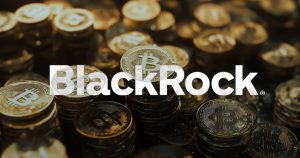
The United States Securities and Exchange Commission (SEC) has put Terraform’s legal strategy to the test, challenging the payment of a substantial advance of 166 million dollars to the law firm Dentons.
SEC’s move towards Terraform’s legal choice
This move, as reported by Reuters, has sparked a storm of controversy and raised serious questions about the management of funds during the Terraform bankruptcy proceedings.
The objections of the SEC go beyond the advance payment. It has explicitly stated that Terraform should not be allowed to use Dentons’ legal services or cover litigation expenses for its employees.
At the center of the issue is a complex web of accusations suggesting a strategic maneuver to evade potential legal consequences.
Terraform, led by its founder Do Kwon, is embroiled in a legal battle with the SEC over the collapse of TerraUSD, a stablecoin, and the subsequent fall of the LUNA token.
The events of May 2022 saw billions of dollars of investors’ wealth vaporize, prompting Terraform Labs to seek shelter under Chapter 11 bankruptcy in January 2024.
At the center of the SEC’s objections is the claim that the payment of $166 million to Dentons was not a legitimate allocation of funds, but rather a diversion tactic aimed at protecting assets from potential judgments in the ongoing lawsuit.
The SEC alleges that this substantial sum was actually “funneled” into what is described as a “shadow fund for its lawyers.”
This diversionary tactic raises some doubts, especially considering the background of Terraform’s bankruptcy procedure.
With creditors and investors clamoring to be repaid, the SEC argues that channeling such a significant sum into legal defense constitutes a disservice to those seeking compensation.
The funds that could potentially have been used to repay investors or creditors are now entangled in a legal dispute.
The reasons behind the SEC’s objections and the response of the company named in the lawsuit
The implications of the SEC objections are far-reaching. Beyond the immediate financial repercussions, they shine a spotlight on the ethical considerations surrounding corporate conduct during bankruptcy proceedings.
The position of the SEC emphasizes the importance of transparency and accountability, especially in cases where the interests of stakeholders are at stake.
The response from Terraform Labs and Dentons, or lack thereof, adds another layer of complexity to the ongoing saga. Despite requests for comment from various parties, including CoinDesk, both parties have remained tight-lipped.
Their silence in the face of such serious accusations only deepens the intrigue surrounding this controversial issue.
While the legal battle between Terraform and the SEC rages on, the entire cryptocurrency community remains on edge. The outcome of this case could set a precedent for how regulatory bodies will handle similar situations in the future.
Furthermore, it emphasizes the need for greater control and supervision in a sector often characterized by rapid evolution and intrinsic complexity.
For investors and creditors affected by the Terraform failure, the SEC’s objections offer a glimmer of hope. They represent a tangible effort to hold accountable those responsible for mismanagement of funds and the resulting repercussions.
However, the road to justice remains full of obstacles and the final resolution of this dispute is far from certain.
Conclusions
In conclusion, the SEC’s objections to Terraform’s $166 million payment to Dentons highlight the fundamental importance of transparency and accountability in the cryptocurrency sector.
This controversy highlights the ethical considerations surrounding corporate conduct, especially during bankruptcy proceedings where the interests of stakeholders are at stake.
The diversion of funds towards legal defense, as claimed by the SEC, raises serious questions about fiduciary responsibility and the priority of the interests of investors and creditors.
The legal battle between Terraform and the SEC represents an important moment for regulatory oversight and investor protection in the sphere of cryptocurrencies.
The outcome of this dispute will not only have an impact on the future of Terraform, but could also set a precedent for handling similar cases in the future.
Ultimately, the resolution of this dispute will be closely followed by the broader cryptocurrency community, which will have to face the complexities and challenges inherent in this rapidly evolving landscape.






















